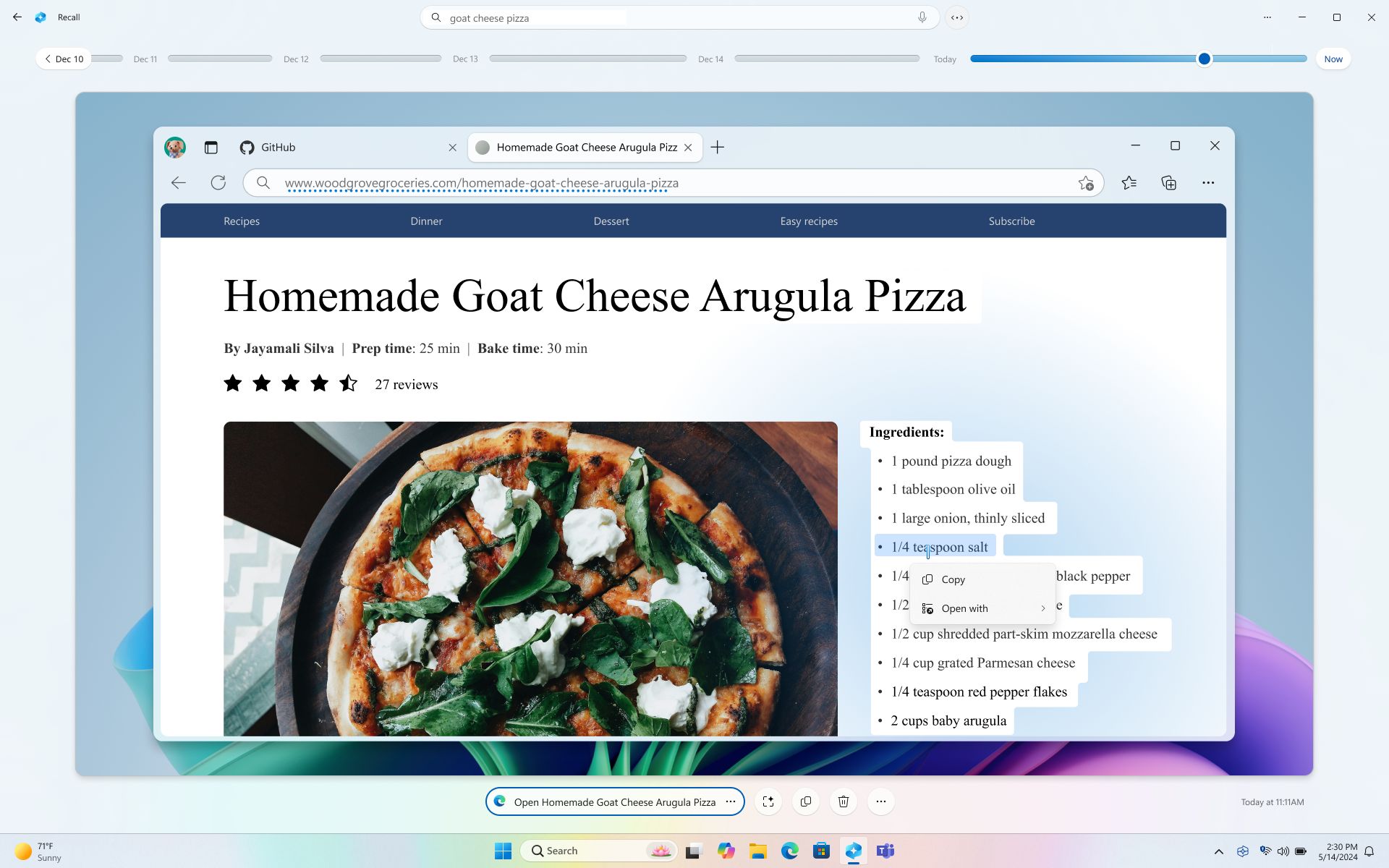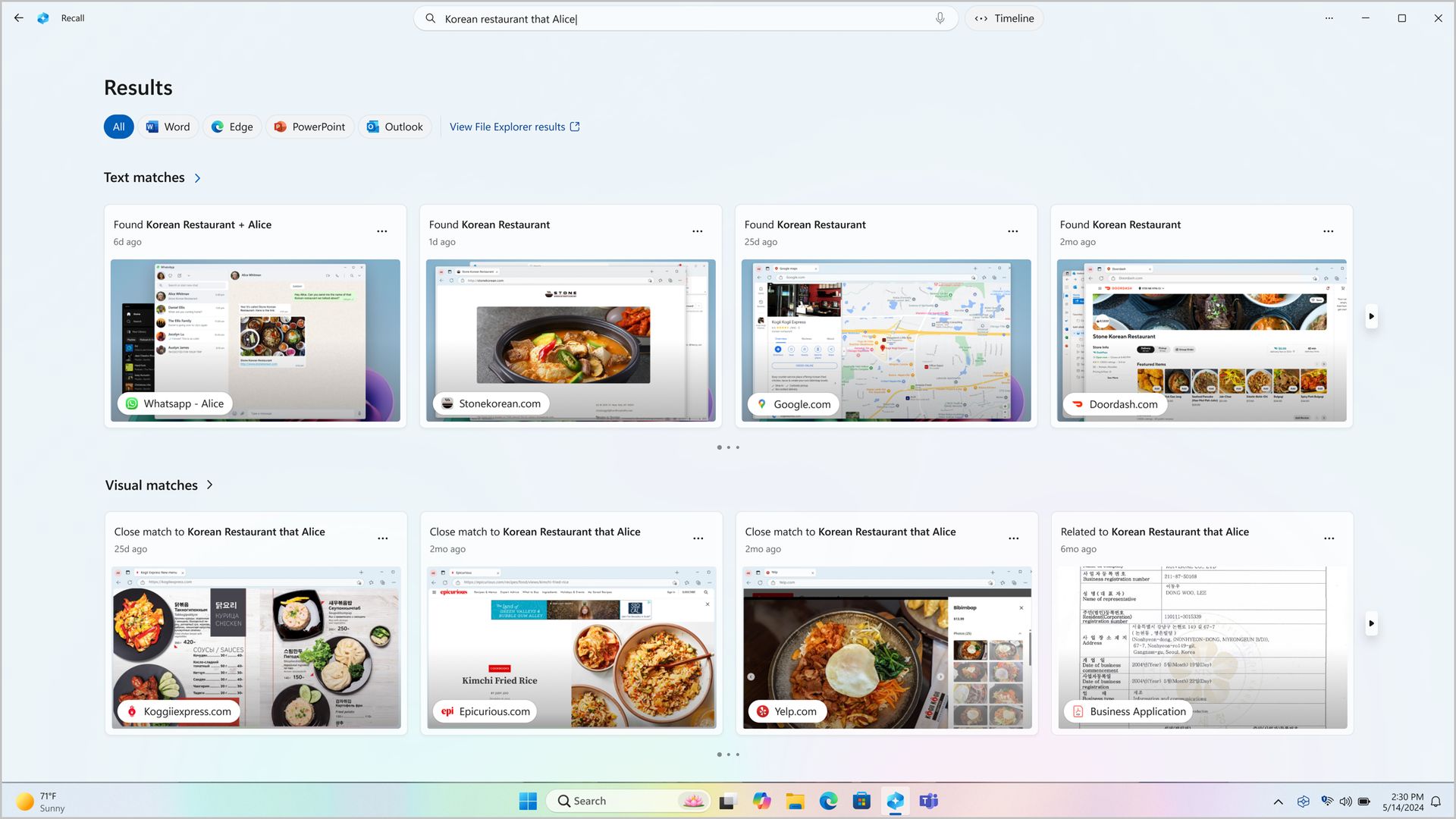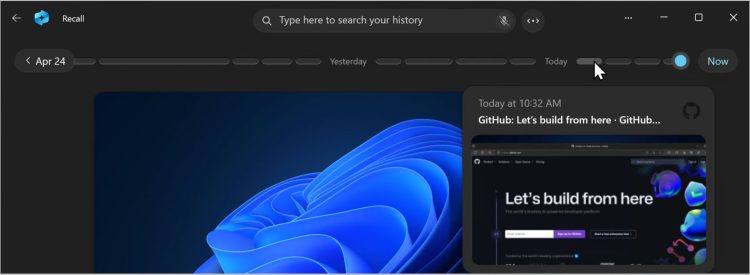Microsoft has responded to criticism and announced that it will offer the Recall feature as an optional feature. The tech giant responded to public feedback on its newly introduced feature on Copilot+ AI PCs. Designed to make it easier to search a user’s computer history, Recall was quickly met with backlash due to privacy and security concerns. In light of these concerns, Microsoft has taken steps to update the system and allow users to disable Recall if they wish.
A little more than a month ago, Recall was released as a component of Copilot+ AI PCs. The purpose of the function was to enhance the user’s experience by simplifying the process of searching through previous computer usage. Recall tried to apply AI to make tracking and retrieving usage history for consumers easy and effective. But the public greeted the disclosure with suspicion and criticism, voicing legitimate worries about the ramifications for security and privacy.

Microsoft’s response: Making Recall optional
The initial backlash stemmed from fears that such a feature could lead to unwanted data exposure and potential misuse of sensitive information. Users voiced their apprehension about how Recall would handle their data and the risks associated with having an AI tool that logs and searches through their PC activity. These issues were important enough to force Microsoft to reevaluate how the functionality was implemented.
In response to the feedback, Microsoft recognized the need for greater transparency and control for users. The tech company acknowledged that while Recall had the potential to offer convenience, it also posed risks that needed to be addressed. Microsoft has recently updated Recall significantly to allay user worries and win back user confidence.
In response to the feedback, Microsoft announced that Recall would now be an optional feature. During the initial setup of a new Copilot+ AI PC, users will be prompted to choose whether they want Recall enabled. Additionally, Microsoft has implemented enhanced security measures, requiring users to utilize Windows Hello to allow Recall to access the timeline of recorded PC activity.
Enhancements and safeguards
Microsoft has improved encryption standards for Recall. Each snapshot of the PC’s activity, along with the search index database, will be fully encrypted and stored locally on the user’s computer. These encrypted snapshots will only be decrypted when unlocked via Windows Hello, ensuring that sensitive information remains protected and only accessible to authorized users.

Microsoft has stressed that data encryption is as important as biometric authentication. Every snapshot taken by Recall and the associated search index database is now encrypted. This encryption ensures that sensitive data remains protected and inaccessible to unauthorized users. Microsoft has clarified that these encrypted snapshots are stored locally on the user’s computer, rather than on a cloud service, further reducing the risk of data breaches.
Monitoring user reception
Microsoft’s updates to the Recall feature will be implemented on Copilot+ AI PCs starting June 18. This rollout will allow users to experience the new optional settings and enhanced security measures firsthand. It remains to be seen how the public will receive these changes and whether they will alleviate the initial concerns about privacy and security.
As Recall is currently exclusive to Copilot+ AI PCs, users of other platforms, such as Windows 11 on x86 desktop PCs or laptops, will not have access to this feature. Microsoft has not announced any plans to extend Recall to other platforms at this time. The company will likely monitor the feedback and reception of the updated Recall feature before making any further decisions about its broader implementation.
Featured image credit: Microsoft





